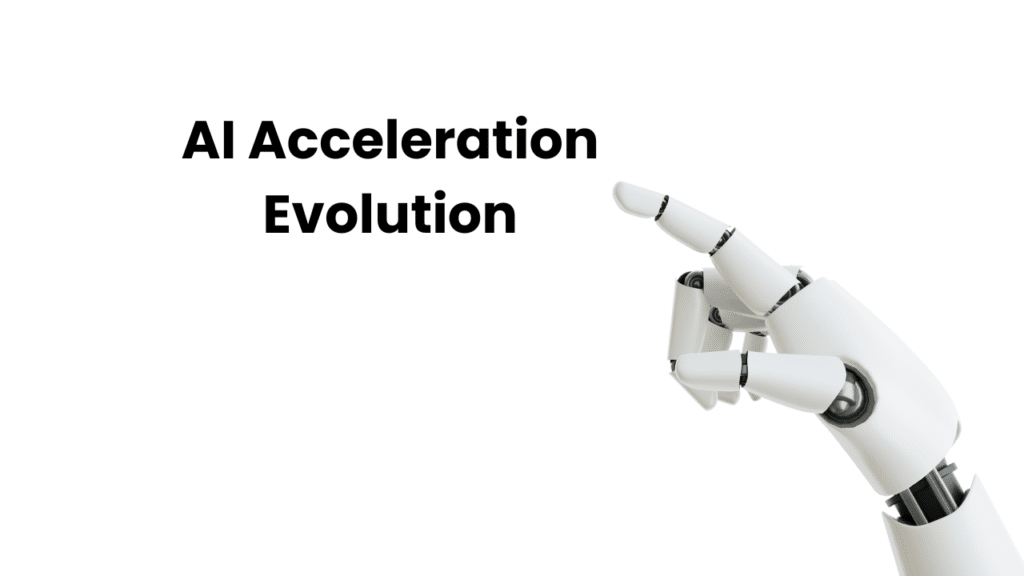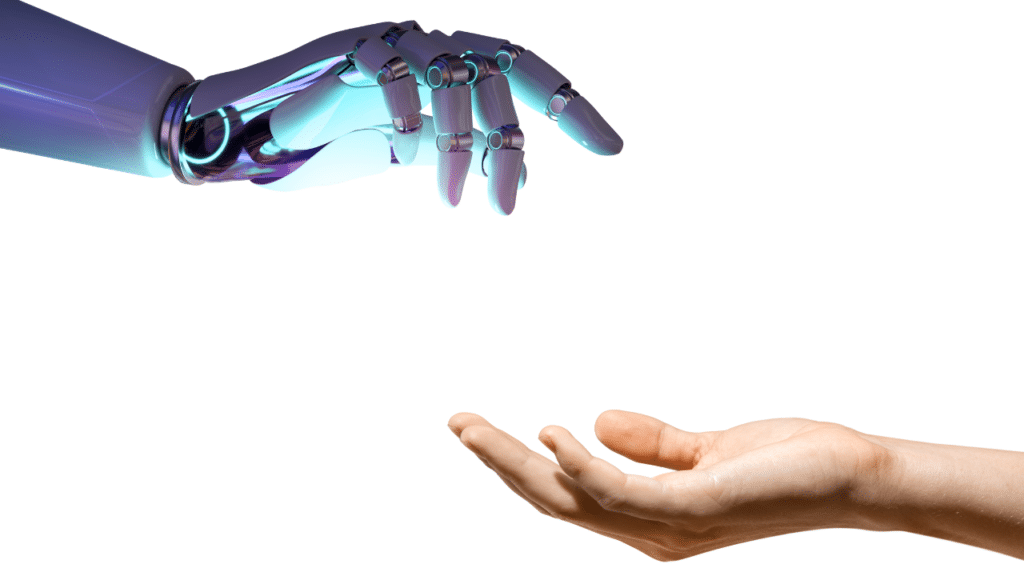Artificial intelligence has been used to transform a number of industries worldwide, which has increased demand for AI processing capacity. AI accelerators: specific devices intended to speed up AI applications have become popular as a consequence of the field’s rapid breakthroughs.
This article explores the comprehensive overview of AI accelerators, their growing relevance in the AI sector, and their role in advancing the practical application of AI.
To avoid AI detection, use Undetectable AI. It can do it in a single click.
AI Acceleration Evolution

AI accelerators have a history dating back to the early days of digital computing, when particular hardware was needed to handle the complex mathematics involved in operating the earliest computers.
Dedicated AI processors have been developed to meet the growing demands of AI applications, which have increased in complexity, power density, efficiency, and variety of use cases over the years.
These AI accelerators, which were created to handle demanding computational tasks, have established themselves as the mainstay of AI computing and have ushered in the era of AI acceleration. Enhancing performance, accuracy, and constraint limitation are significant aspects of AI acceleration than just speeding up function execution.
With the advancement of AI acceleration, processor-centric computing has given way to data-centric computing. The development of AI algorithms and innovative technology has a significant influence on how we may use the potential of artificial intelligence.
Without a doubt, AI accelerators have had a major influence on reducing the latency connected to conventional computing resources.
How AI Acceleration / AI Accelerator Works?

The data center and the edge are the two different AI accelerator spaces that exist today. Massively scalable computational architectures are necessary for data centers, in particular hyper scale data centers.
The semiconductor industry is expanding in this area. For deep-learning systems, Cerebras, for instance, invented the Wafer-Scale Engine, the largest chip ever constructed.
When compared to existing architectures, the WSE can facilitate AI research at quicker rates and with higher scalability since it can supply additional computation, memory, and connection bandwidth.
The opposite end of the spectrum is represented by the edge. Since the intelligence is dispersed at the network’s edge rather than in an additional central position, energy efficiency is fundamental in this situation, and real estate is restricted.
AI accelerator IP is included into edge SoC devices, which, regardless of size, provide the near-instantaneous outcomes required for applications such as industrial robotics and smartphone interactive programs.
AI Accelerators Types

AI accelerators come in different forms, such as Field Programmable Gate Arrays, Azure Machine Learning Hardware Accelerated Models, Graphic Processing Units, and Tensor Processing Units.
The popular AI accelerators are GPUs, which have exceptional processing capacity and can manage the massive data quantities needed for neural network training. TPUs were introduced by Google with the intention of addressing machine learning workloads.
Not to be overlooked are Azure Machine Learning Hardware Accelerated Models, which are intended to facilitate effective model serving at reduced latency and expense. Reprogrammable silicon chips known as FPGAs are becoming popular in AI workloads due to their ability to grow and alter solutions while maintaining high performance.
Deep Learning Use of AI Accelerators

Technology has transformed as a consequence of artificial intelligence, and one of the top benefits of AI acceleration is the subdomain of AI referred as deep learning. Traditional CPUs are unable to manage large neural networks and amounts of data, which necessitates computation power and memory for deep learning algorithms.
Deep learning applications can function efficiently due to AI accelerators, so it is easier to comprehend and use the intricate intricacies of these machine learning algorithms.
The remarkable acceleration of AI can be attributed to the increased demand for speed, accuracy, and intricacy.
The main factor behind the demand for efficient processors was deep learning and its enormous processing demands. Deep learning activities can benefit from AI acceleration, which enables us to process enormous data sets quickly and productively. Deep learning and AI are evolving because to AI accelerators.
AI Accelerators Effect on the Cloud

AI accelerators constitute vital components of cloud computing and are not just restricted to physical hardware. Massive processing and storage capacity are needed to handle the everyday volumes of data generated.
Cloud data center AI accelerators speed up the analysis of this data, so it is easier to train machine learning models, and reduce latency for real-time applications. AI accelerators are being integrated by cloud providers to handle workloads effectively, improving performance and cutting costs.
They are promoting the use of AI at the corporate level by providing AI acceleration accessible without requiring significant infrastructure expenditures. As a consequence, the cloud is developing alongside AI accelerators to provide effective and useful AI solutions.
Conclusion: AI Acceleration
Even though they are still new in the world of technology, AI accelerators are becoming popular as a solution to today’s AI problems. Artificial Intelligence Accelerators are predicted to develop because to the exponential expansion in data and the resulting rise in need for processing capacity.
AI applications will become faster and effective as a consequence of additional advancements in AI acceleration technology. The future of AI accelerators depends on generating new opportunities in addition to refining existing functionalities.
This could involve the development of hybrid models, novel form factors, or even quantum AI accelerators. The drive for AI acceleration is going to increase as our AI attempts continue to grow.
FAQs: AI Acceleration
What is AI Acceleration?
AI Acceleration refers to the techniques and technologies used to improve the speed and efficiency of artificial intelligence processes. This is crucial because as AI applications become complex, there is a growing need to handle larger datasets and sophisticated algorithms.
By using specialized hardware, such as GPUs and TPUs, AI acceleration can reduce latency and enhance the performance of AI workloads.
What types of hardware are used for AI Acceleration?
Different types of hardware are utilized for AI Acceleration, including GPUs, CPUs, and FPGAs. GPUs (Graphics Processing Units) are used for their ability to handle parallel processing, which is fundamental for training neural networks. TPUs are designed for machine learning tasks and excel in processing tensor operations.
Emerging technologies in chip design enhance AI performance by optimizing the architecture for AI algorithms.
How does AI Acceleration affect machine learning?
AI Acceleration has a profound impact on machine learning by enabling quick training of AI models and quick inference. With the use of high-performance computing resources, deep learning frameworks can process vast amounts of data.
This acceleration allows for the development of advanced deep neural networks and enhances the capabilities of natural language processing and computer vision applications.


